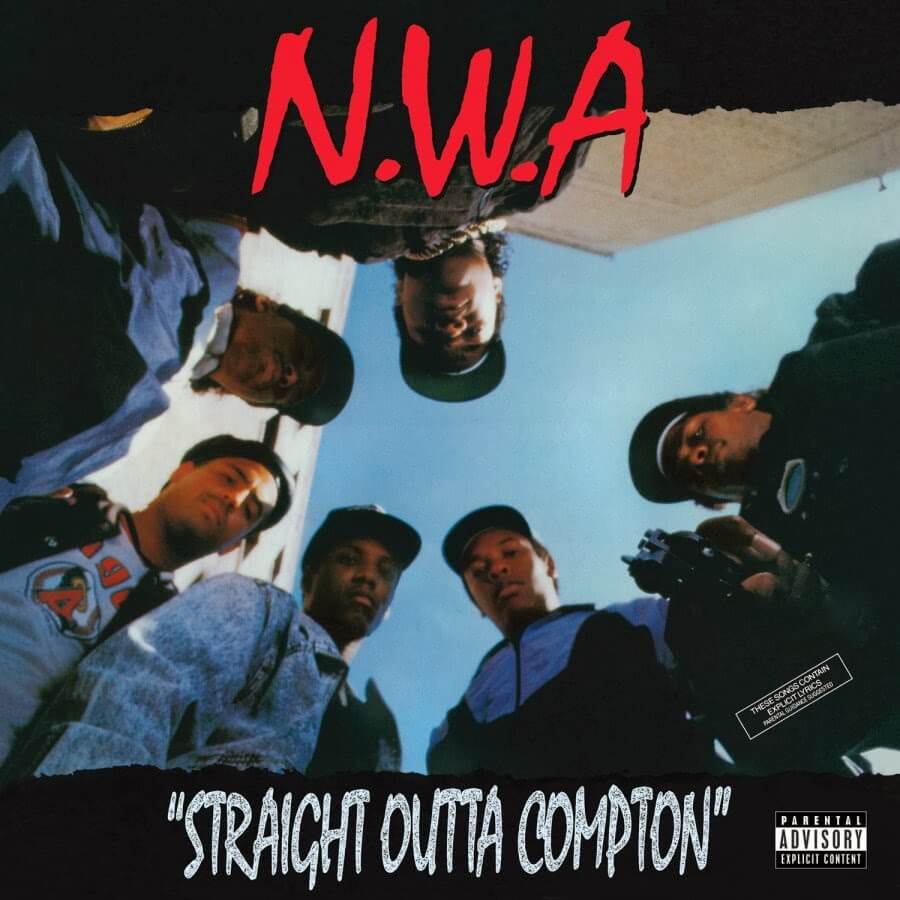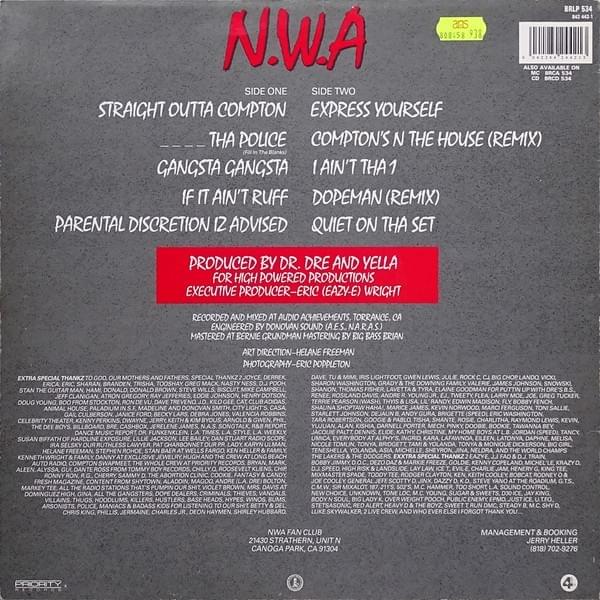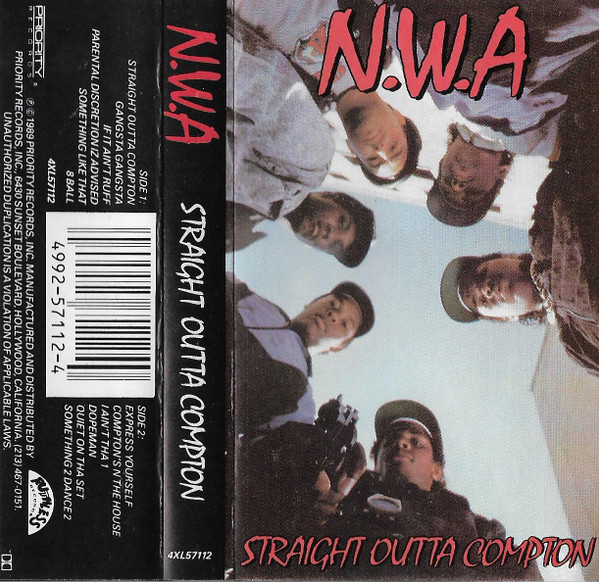N.W.A, short for N****z Wit Attitudes, was formed in Los Angeles, California in 1986. The group consisted of Eazy-E, Dr. Dre, Ice Cube, MC Ren, and DJ Yella, and their music was known for its raw, unfiltered portrayal of life in Compton. N.W.A’s lyrics were confrontational and profanity-laced, with themes of police brutality, racism, and the gangsta lifestyle that was prevalent in their community. Despite their controversial subject matter, N.W.A quickly gained a following and became one of the most influential groups in the history of Hip Hop.
Their Straight Outta Compton is a seminal album in the history of Hip Hop. Released in 1988, it was a bold and unapologetic statement from a group of young Black men who had grown up in one of the toughest and most impoverished neighborhoods in Los Angeles. The album was a scathing indictment of the police brutality and social injustices that they and their community had experienced firsthand.
The album kicks off with the title track, “Straight Outta Compton,” a hard-hitting, no-holds-barred introduction to the group and its message. The lyrics are raw and confrontational, with each member taking turns delivering verses that are as politically charged as they are profanity-laced. The production, courtesy of Dr. Dre and DJ Yella, is equally aggressive, built around heavy basslines, menacing synth lines, and hard-hitting drums. The track sets the tone for the rest of the album, with its uncompromising style and unrelenting message.
The album’s most controversial track undoubtedly is “F*** tha Police.” The song’s aggressive anti-police message led to bans and censorship attempts from radio stations and government officials. However, the song also struck a chord with many young Black Americans who felt victimized by the police and the justice system. Its impact is still felt today, as police brutality and racism continue to be major issues in the United States.
Despite the controversy surrounding “F*** tha Police,” it is just one of many standout tracks on the album. “Gangsta Gangsta” is a hard-hitting ode to the gangster lifestyle. “Express Yourself” is a more lighthearted track, with a catchy sample from Charles Wright & the Watts 103rd Street Rhythm Band’s “Express Yourself” and lyrics encouraging individuality and free expression. Other notable tracks include “Parental Discretion Iz Advised” “I Ain’t Tha 1,” and “Dopeman.”
One of the most impressive aspects of Straight Outta Compton is how it manages to be both aggressive and socially conscious at the same time. The members of N.W.A were not just rapping about violence and street life; they were also calling out the systemic racism and poverty that had led to these issues in the first place. They were angry and frustrated, but they were also smart and thoughtful, using their platform to speak truth to power and raise awareness of the issues facing their community.
Straight Outta Compton was not just a great album; it was a cultural phenomenon that changed the face of Hip Hop and popular culture as a whole. It paved the way for the gangsta rap subgenre, which would dominate the charts for years to come. It also gave a voice to a generation of young Black Americans who felt ignored and marginalized by mainstream society.
In the decades since its release, Straight Outta Compton has continued to be an inspiration and a touchstone for Hip Hop artists and fans alike. The album’s impact on popular culture cannot be overstated, as it brought issues like police brutality and racial inequality to the forefront of public consciousness. Straight Outta Compton remains one of the most powerful and important albums in the history of Hip Hop, a testament to the enduring power of music as a tool for social commentary and change.


